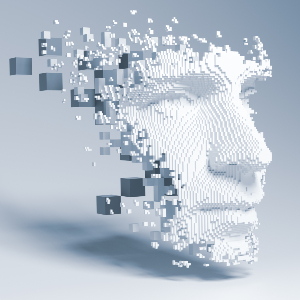
The use of data to make more informed decisions is nothing new to government agencies. For years, governments have utilized systems and programs to analyze high amounts of data to better understand critical issues and functions within the public sector and to help them make improvements and more informed decisions moving forward.
Today, with the advancement of technology and big data, governments can compute, store, analyze, and share information on a whole new level, enabling them to tackle issues facing society on a much larger scale. And as big data grows, it only continues to transform the way government agencies operate.
Furthermore, as the digital realm expands and improves data sharing capabilities, governments are using data initiatives to encourage public participation and transparency to improve trust and build a stronger sense of community and unity amongst its people. In turn, this allows governments to make more meaningful changes and provide more stability.
How Governments Can Use Big Data to Make Positive Changes in Society
Numerous big data initiatives are being implemented by the government to improve all aspects of the public sector. Some of these involve transportation, energy and utilities, weather services, the environment, social services, homeland security, and more. The goal of these big data initiatives is to improve the overall lives and well-being of a nation’s people.
Some more notable public programs being affected by big data include:
Public Health
Public health and safety are major concerns for governments and their citizens. When the COVID-19 pandemic hit, for example, it was a massive public health crisis that impacted nations across the globe, leaving government agencies and their people struggling. However, eventually, through the use of big data, governments were able to collect, analyze, and share large amounts of data to help them make improvements, particularly with vaccination efforts.
Mental health and drug abuse are also major public health concerns in many nations. Today, millions of people struggle with stress, depression, drug addiction, and other mental health issues, all because of things like unmanageable debt and poor living situations. Debt issues are strongly linked to a person’s health and well-being, and drug addiction—though it can be triggered by many things—is often something people turn to when they are stressed about money and life and can’t get the help they need.
With big data, however, governments are now able to more effectively treat issues of mental health and drug abuse by being able to collect data to provide more targeted solutions for areas and people that are struggling the most. The healthcare industry itself, with the help of big data and government initiatives, is making improvements to make healthcare more accessible as a whole.
Emergency Response
Emergency response to natural disasters is also improving thanks to big data. By collecting and analyzing data, governments can more effectively identify health issues, coordinate displaced individuals, and prevent other issues that arise. With Hurricane Maria, for example, the government used data analytics to identify the most crucial areas of need to provide a more effective allocation of resources.
Smart Cities
Government agencies around the globe are also using big data to help build “smart cities” to improve municipal administration, transportation, energy, public safety, infrastructure, and more. By leveraging smart technologies such as artificial intelligence (AI), cloud computing, the Internet of Things (IoT), mobile devices, apps, and more, governments can generate significant amounts of data that help them provide more sustainable and resilient cities. In turn, this improves resident satisfaction and attracts new business and investment for further development.
Big Data and Improved Government Security
With the emergence of big data, we have also seen improvements in cybersecurity. Data and things like cybersecurity are inextricably linked. Big data involves collecting, analyzing, and sharing large amounts of sensitive information, which naturally requires data security. So as data initiatives grow, data security also improves with things like blockchain technology.
Two areas that big data and data security are improving for governments and public sectors are elections and identification systems:
- Elections: Election processes involve massive amounts of data being collected, shared, and stored. Recently, with the U.S. elections, there have been major concerns about fraudulent information and systems being hacked. However, with improvements in big data and blockchain technology, governments can provide more secure elections that are impossible to rig or hack.
- Identification Systems: Keeping track of the identities of your nation’s people requires a secure and organized system of data. With big data and blockchain, governments can make significant improvements to their identification systems. This can improve the protection of sensitive information, prevent identity theft, and reduce lag time when processing and accessing information.
Final Thoughts
Overall, big data helps governments better regulate their citizens, improve public sectors (ex. public health), and provide more security to their people and election processes. Furthermore, with data transparency and public involvement, governments can build trust, which in turn creates more united and stable nations.
